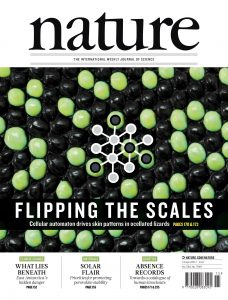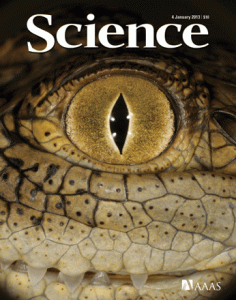Position for a Cell / Developmental Biologist or Biophysicist at the University of Geneva (Switzerland)
Posted by Michel Milinkovitch, on 12 June 2019
Closing Date: 15 March 2021
In the context of a multidisciplinary study funded by an ERC advanced grant, the Milinkovitch lab offers one position for an outstanding, highly motivated, and creative experimental wet-lab biologist or biophysicist (at the Post-doc level or, possibly, PhD student level) with strong skills in Cell and Developmental Biology as well as experience in Biophysics. The position is for 3 to 5 years and must start between September and December 2019. The successful candidate will use molecular/cell/developmental biology and biophysics methods to investigate (i) how cell proliferation and tissue differentiation are coupled to mechanical tension during scale development in reptiles and birds, and (ii) how geometry of the skin affects reaction diffusion during the development of skin colour patterns in reptiles. These analyses will be performed on new model species (lizards, snakes, crocodiles, birds) already established in the Milinkovitch lab.
Excellent written and verbal communication skills in
English are mandatory. Other specific requirements are strong expertise in
- Cell and Developmental Biology: CRISPR-Cas9 technology, ex-vivo tissue cultures, confocal and light-sheet microscopy, immuno-histochemistry, in-situ hybridisation, transcriptomics, in-vivo assays;
- Biophysics: micro-indentation, physical experiments with PDMS/hydrogels, laser ablations, etc.
Candidates must have a PhD in Biology or biochemistry or Biophysics. The position is available at the level of Post-Doc / Research Associate. Exceptional master students can be considered for a PhD student position.
The University of Geneva (UNIGE) is world-renowned for its research and is among the top 1% best universities in the world. Geneva is an international city occupying a privileged geographical situation.
Candidates must send their application — in the form of a single PDF file including a brief letter of interest, a CV, as well as contact information (not support letters) of three persons of reference — to: lane-jobs@unige.ch
Deadline for application: July 15, 2019.
References
: Elastic instability during branchial ectoderm development causes folding of the Chlamydosaurus erectile frill.
eLIFE (in press). Locally-curved geometry generates bending cracks in the African elephant skin. Nature Communications 9 (2018); A Living
Mesoscopic Cellular Automaton Made of Skin Scales. Nature 544: 173-179 (2017); The Anatomical Placode in Reptile Scale Morphogenesis Indicates Shared Ancestry Among Skin Appendages in Amniotes. Science Advances 2, 6: e1600708 (2016); Photonic Crystals Cause Active Colour Change in Chameleons. Nature Communications 6: 6368 (2015); The genome sequence of the corn snake (Pantherophis guttatus). Int. J. Dev. Biol. 58 : 881 – 888 (2014); Crocodile Head Scales Are Not Developmental Units But Emerge from Physical Cracking. Science 339, 78-81 (2013). Crocodylians Evolved Scattered Multi-Sensory Micro-Organs. EvoDevo 2013, 4:19.




 (No Ratings Yet)
(No Ratings Yet)